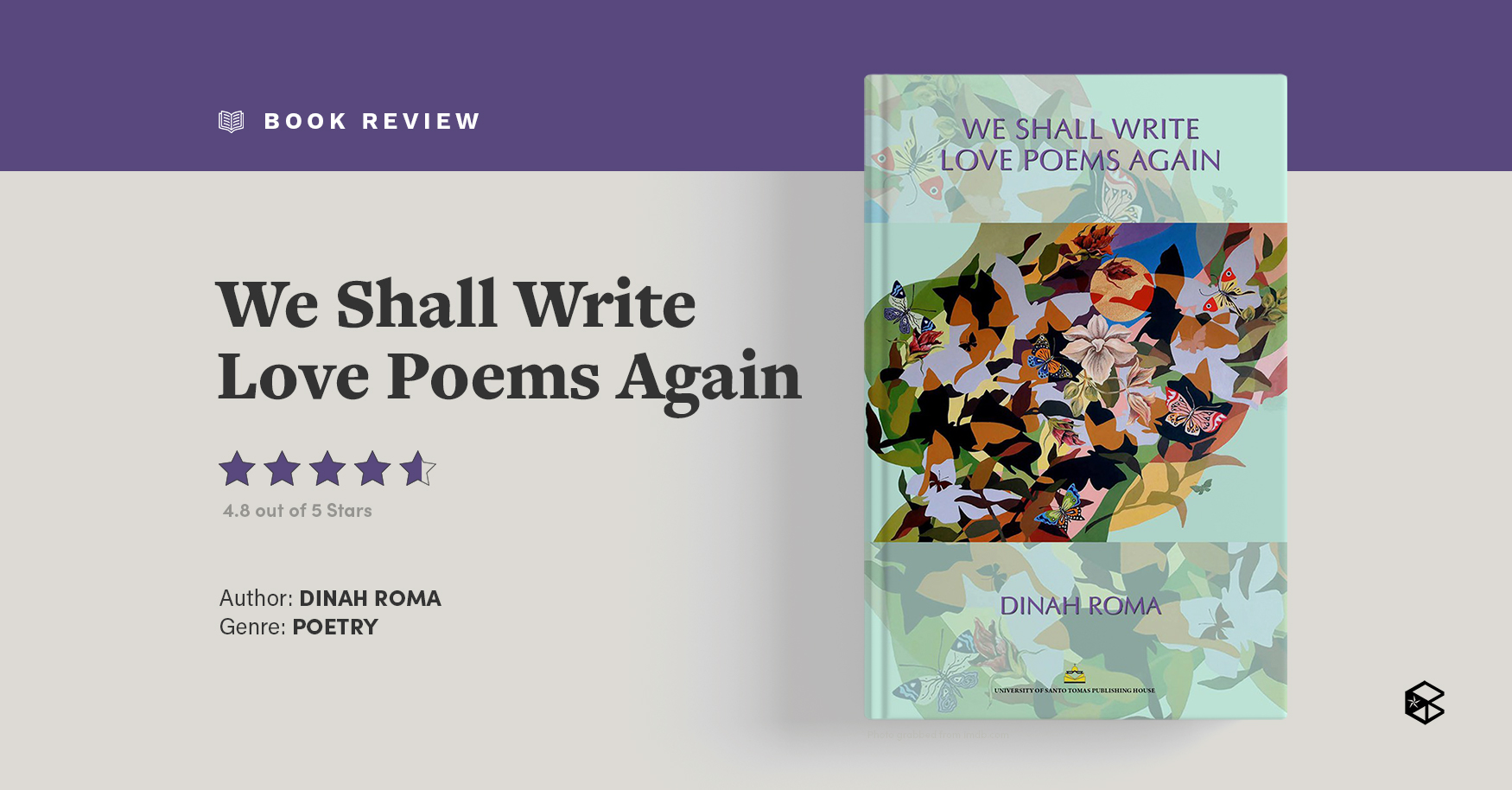In a chaotic place where love seems paradoxical, we are etched with a feeling of anxiety as ongoing plagues prick at our spirit. That is how Dinah Roma, a Filipino creative writer known for her major contribution in Philippine literature and a recipient of Gawad Pambansang Alagad ni Francisco Balagtas for Poetry in English, approached our current situation through her poetry collection titled, “We Shall Write Love Poems Again.”
“I wanted to comfort you before your voice trailed off...”
Reaching out to fellow writers who succumbed to despair, the first stanza of the poem already opens with a consolation. Roma engages with writers who are frustrated with the morbid circumstances of the country.
The intolerable situation is strongly emphasized in the line: “Into the burden images choking you to tears.” Such images include human rights violations, corruption, censorship, and more. All of these are heavily emanated during the pandemic, when the present issues can no longer be contained. Such times have also prompted the anxieties of burnout on most writers. The poet also uses the “tree” and even the “moonlight” in the first stanza to personify how romance and naivety resonate in love poems; that poets have not delved into satire despite the apparent growing weight of problems. Not until mayhem has fallen into place.
While the author encourages the fellow writers to pick up the pen once more, she also vents out her own frustrations in the second stanza by stressing that contemporary romantic poetry has lost the weight of its original inspiration—love. Roma illustrates that love poems are deceiving and that they do not visualize the ugly truth about life; thus, shifting the poem’s mood in the second stanza to: “Betrayed by them. Worn out by them.”
Do love poems allow us to turn a blind eye to our grim reality by still portraying positivity even when it’s scarce and hard to find? In reality, the writers who once had the joy of writing love poems felt the pressure of leaving their pens to collect dust, and the author commiserates with them.
“Until I learned love poems do not bleed for broken hearts”
This one-line stanza then leaves us with a realization that love poems do not mend our present problems–––death, casualties, killings, violence. We feel a sense of hopelessness; there is no place in this world for romance and bliss. We see with our own eyes the rampant politicization in our country as we combat this health crisis, thereby begging the question for the writers who are watching closely in the news: how can love poems even hope to inspire when such love poems will never solve their problems?
“After grieving its truth, you can breathe more deeply, rise and desire…”
The atmosphere of the poem eventually shifts into a call to action for the writers. Roma reveals that although love poems have lost themselves in their self-fulfilling meanings, the truth is they can always find their way back to what they were meant to be. When all the negativity in the world begins to engulf our spirit, that is the perfect time to fight back. For the writers, this means searching within themselves to find what drives their passion, before eventually turning that passion into words.
Above all, we live in a new normal where life is already unpredictable. While the essence of love poems presently may seem paradoxical, this poetry collection may serve as a reminder of our hope that can be found amidst the darkness we are facing.
Indeed, the uncertainty and hopelessness of the writers would return after finding the love that was lost, thereby being able to pen stories once more.
For more information, the poetry collection is available at UST Publishing House and can be purchased online here.
This article is also published in The Benildean Volume 7 Issue No. 2: Restored.


